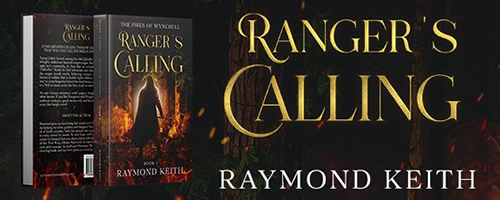124. How Should Christian Novels Help Secular Readers?
Podcast: Play in new window | Download (Duration: 1:45:07 — 97.6MB) | Embed
We’re finding many Christian-made fantastical novels that want to appeal to Christian and secular readers. Many aspiring authors want to conjure a literary elixir that has evaded all but the most elite creators. They call this “crossing over,” not just reaching readers in evangelical markets, but finding a bigger fanbase in general markets. Should these stories try to help secular readers, such as by presenting nonbelievers with better views of Christians or churches? And if so, what’s the best way to do this, not just according to results, but according to the Bible?
Subscribe to Lorehaven
articles • news • library • reviews • podcast • gifts • guild
Episode sponsors
- Oasis Audio: titles by L. Frank Baum
- P. S. Patton’s The Withering
Explore more at the complete Podcast Sponsors page.
Concession stand
- Yes, we might be thinking of particular authors. No, we won’t name them.
- This is kinda about evangelism, but broader than that. Mainly it’s about rep.
- And this also does relate to rhetoric we see from some aspiring authors.
- We may see in fantastical stories a way to make things right in the real world.
- But if we come from sheltered worlds, well, sometimes we don’t see right.
1. How have Christian novels tried to “cross over” and help secular readers?
2. How do some aspiring Christian authors want to help secular readers?
3. How should Christian novels help secular readers by being more realistic?
- Be realistic about the world, including the evils of trendy sins.
- Be realistic about the church, including its great blessings from God.
- Be realistic about tragic backstories, including mixed motives for “fearing.”
- And be realistic about eternal destiny, including God’s righteous wrath and rewards.
Com station
Nina Slone on YouTube replied to our older episode 7:
This gives one much to think about. I enjoyed it. I’m a little surprised that only 20 people watched it and no one left a comment. I just found it. Thank you.
Meanwhile at Lorehaven
- Join our Lorehaven Guild book quest for N. D. Wilson’s 100 Cupboards, ongoing in August.
- We also reviewed 100 Cupboards (2007) and we’re making more reviews.
- Elijah David releases a great article: Shasta’s Meeting with Aslan in ‘The Horse and His Boy’ Helped Me Embrace God’s Sovereignty.
- Look for our next article with a back to school book list for families!
Next on Fantastical Truth
Okay, we admit, in recent episodes we have sounded more negative about popular culture. That’s justified. At the same time, why have some pundits go even more negative about fine pop-culture traditions? For example, just a few years ago, some critics spoke like movie theaters and the whole cinematic experience were finished, passé, the end! Instead we’d all be sitting at home in lockdown with our streaming services, watching made-for-TV-movies and shows! Now that theater movies are roaring back, and some studio CEOs are taking hard looks at the flaws of streaming, how can Christians evaluate that strange impulse to spy trends ahead of time and predict our culture’s future?


































Thank you for this! I’m doing a lot of thinking about this and you articulated some points that will help me as I tackle my next book.
Whether or not Christian authors intend to write for a Christian audience, it might be good for them to remember that secular readers will probably discover and read their books anyway. Secular readers could have the book recommended by a Christian friend, or even accidentally stumble across it on Amazon. It’s important for Christian authors to be aware of that — not necessarily for the sake of conforming to secular expectations, but for the sake of thinking ahead and figuring out the most constructive way of handling any issues that can come up.
Some of this has to do with being a good witness, but some of this is also about the fact that some people are going to be antagonistic to the author. It is important for the author to anticipate at least some of those issues ahead of time so they aren’t caught by surprise. Being caught by surprise can be one of the worst things because it can make it harder to react in a calm and reasonable manner (or decide whether its necessary to react publicly in the first place).
Also, authors need to be able to listen to feedback but not to the degree that they let themselves be pushed around by others. A lot of people don’t have a good balance between the two.